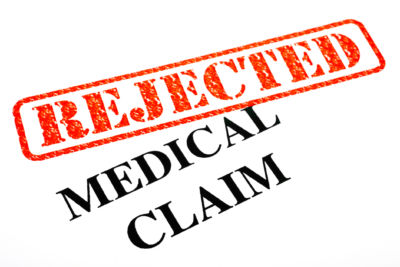


A car accident can leave an injured motorist facing thousands of dollars in medical expenses alone. The Michigan No-Fault Act requires your auto insurance company to pay for your recovery, but often insurance adjusters refuse to pay the bill. Find out what happens when your auto insurance company won't pay your doctor.
When you go to the doctor after an auto accident, whether by ambulance through the emergency room or by appointment with your primary care physician, you agree that the doctor will be paid for your treatment. The doctor's staff will often take your auto insurance and medical insurance information, along with your medical history. This is because Michigan law allows medical providers to claim no-fault benefits from your insurance companies for services provided for your benefit.
After you leave the doctor's office, each of your medical providers will provide billing information to your insurance provider and request payment for their services. However, in many cases, the insurance adjuster will refuse to pay. Often the adjuster will claim that the treatment wasn't "reasonably necessary" to treat an injury that resulted from the auto accident. The adjuster may also claim that the fee charged by your doctor, surgeon, or therapist, is higher than it should be.
When your auto insurance company refuses to pay your medical providers, they have options available to them. If you have already started a lawsuit to collect benefits for medical expenses, lost wages, and replacement services, your lawyer may negotiate with the auto insurance company. If no settlement can be reached, your legal team can go to trial to get all of your medical expenses paid for, including those due to medical providers. At trial, your attorneys will present evidence of:
If your lawyer is advocating for a particular medical provider's bill, that doctor or hospital may ask you to sign a lien. This is a document promising that, if you recover any money from the insurance company, your hospital bill gets paid before you take the rest of the money to your bank.
Your medical providers can also "intervene" to collect their fees directly from the insurance company as part of your case. As "Intervening Plaintiffs" your doctors, surgeons, and hospitals each are entitled to their own lawyers, their own settlements, and their own chance to present a case. A lawsuit with several intervening plaintiffs can get complicated, especially when it is time to negotiate a settlement. Your medical provider's claim to no-fault benefits are dependent on your own valid insurance claim. Your attorneys will need to carefully negotiate what claims are, and are not, included in any settlement you may reach with your insurance company to make sure your medical providers get paid.
Sometimes, your medical provider will choose to file a separate lawsuit to collect its benefits from the insurance company. In some cases, this will even be in a different court from your lawsuit. When that happens, you may be called in to complete additional medical examinations, attend depositions, or even testify in that other court.
Knowing how your medical providers will be paid is important for any personal injury case. Before you and your attorneys can decide whether to accept an offer of settlement from your auto insurance provider, you need to know whether that settlement will cover all your medical expenses. If you accept an amount smaller than the total of all your doctors bills, attorney fees, and costs, you could still end up personally owing your medical providers money when the case is over.
Sometimes a medical provider will sue an injured motorist for the part of the bill an insurance provider doesn't cover. In other cases, the doctor or hospital will be able to submit a bill to your medical insurance provider to cover the difference. In those cases you may still be required to pay co-pays, deductibles, or co-insurance that would have been included in the auto insurance.
That is why it is crucial that you have a thorough discussion about your medical expenses and insurance situation with your auto accident attorney early in your case. Your lawyer can work to make sure any settlement includes an agreement by your medical providers to accept a portion of what is owed, rather than pursuing you for the balance. However, if you have failed to disclose any medical services, including everything from x-rays to occupational therapy, you could be left with unpaid bills even after the litigation is over.
Sachs Waldman is a Detroit personal injury law firm that has been built upon the foundation of trust and loyalty since the 1920s. Sachs Waldman auto accident and personal injury attorneys will fight for their clients against the auto insurance providers to get them the compensation and peace of mind they so very much deserve. Contact our legal office for a free, confidential consultation to assess your case today at (313) 965-3464 or fill out our online form.
© 2024 Michigan Injury Attorneys
View Our Disclaimer | Privacy Policy
Detroit Personal Injury & Car Accident Attorneys